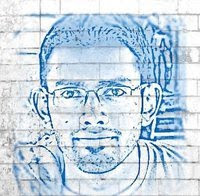So here goes…
Act I Scene 1: The Queen’s capital
The task of blending thine self into a country new to thine feet is but one of the simplest of tasks if thou haileth from the mystic lands of India. And the capital of the Colony is no different.
Thou art reminded of thy first lessons in English which thine Grammar teacher bellowed into thine ears.
Thou art reminded of thy road rules, thy sporting cultures, thy administerial setups, and thy past.
I wouldst like to term it the lasting ‘British side-effect’.
The Victorianesque buildings, the ever-so-silent Thames, the good ‘ol Abbey, the numerous variants of London bridges ,Mr. Big Ben, the Tower of London, the Cathedral’s all stacked up against the modern wonders like the London eye, Madame Tussaud’s, the Underground give a taste of the British prominence of the past and dominance of the present.
Rich in history, tradition and stories of the past, every nook and corner of the most expensive city of the world has a story of its own. London is where history originated for most of the third world countries. It is home to the legends of war, culture, sport and of course royalty.
The city is studded with monuments like the Nelson’s column, the National Gallery where I got my first taste of Michelangelo and Da Vinci; statues of World leaders, memorials for the Women of War (WWII) [see pic]

Londoners take pride in a lot of their assets and rightly so. To name a few it would be their ‘Underground’ – MIND THE GAP as its punch line yells out, their cabs, their football clubs, their tea (Devonshire and Cornwell, two adversary counties who stake their claim at being the original ones), their health – you can’t help but notice what you could call their fitness fetish. Everybody runs, running is not a hobby, its more of a habit they relish in. The whole of London looked like a set of a Nike ad with everyone from people in business suits to the average man on the street ipoded and running. Truly sport is a true form of uniting a country.
There’s a lot for us Indians to learn from the British when it comes to being proud of your country. One chapter they left out on purpose during the colonial teaching days.
